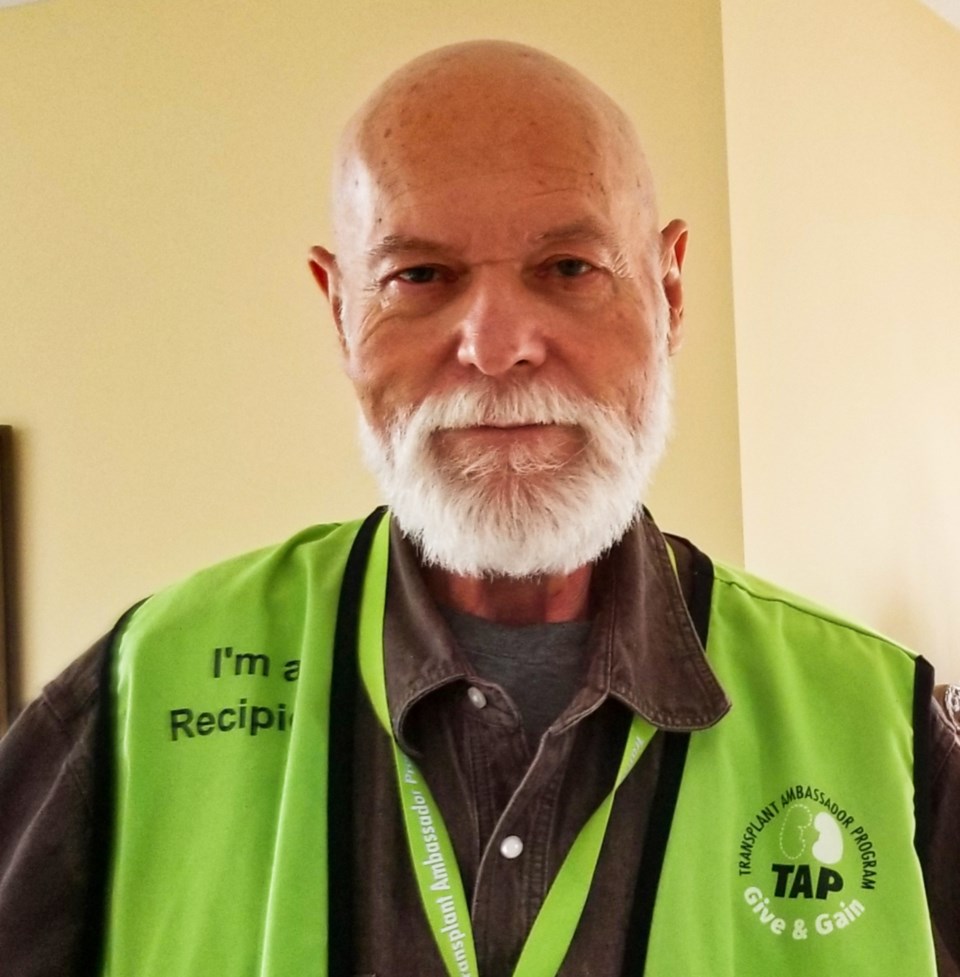An organization in Guelph is raising awareness about live kidney donations, one virtual exchange at a time.
The Transplant Ambassador Program (TAP) is a research program through Can-SOLVE CKD that provides information on kidney failure and resources for recipients to seek when trying to arrange a transplant.
Started in 2016, volunteers work with patients in the Guelph General Kidney Clinic and Grand River Hospital to talk about the transplant options and preparation for the procedure.
“We provide information, knowledge, materials, background and we share our story,” says TAP co-lead Peter Wechselmann, “We work with the patients on a continuous basis in finding them a live donor.”
He adds anyone at any stage of kidney disease is encouraged to reach out to them for help.
“We’re sort of hand holding and helping walk people through their journey of diagnosis to hopefully, a successful transplant.”
Unlike other kidney disease programs, all TAP volunteers are people who have either received a kidney transplant or donated a kidney to a loved one, says Wechselmann.
In Wechselmann’s case, he was 70-years-old when he began to experience kidney failure. That same year, he received a kidney transplant from a deceased donor.
“When I was going through that process, I didn’t have anyone to talk to, I didn’t have any idea of what was happening, I didn’t have any idea what medications I would need to take and what kind of pain I was going to be in, those sort-of things,” he says.
“I know what it’s like to feel and to not have anyone to talk to on a continuous basis as you go along, it’s sort-of like having a safety net.”
Now 74, Wechselmann is helping those experiencing a similar situation through TAP.
“I volunteer more of my time because I believe it is an important cause, especially now that we're shut out of the hospitals,” says Wechselmann.
During the pandemic, TAP has pivoted to offer their services online as they are not able to visit clinics in-person. With volunteers and patients immuno-compromised, Wechselmann explains it will be a while before TAP volunteers can meet with others in-person.
“People can connect with us via Zoom, or email, text, telephone however they want to," says Wechselmann, "We have a website as well that we refer them to.”
Besides supporting those going through kidney failure, TAP aims to also encourage more people, especially family members of those with kidney disease, to consider becoming a live donor.
For the past 10 years the number of live donors for kidneys has remained low. Through intervention, Wechselmann says they hope to bring that ratio up.
“We are promoting it as they are actually the best quality transplant you can get,” says Wechselmann about live kidney donations.
“They function basically right away, they function at a higher level, they last longer, and all that sort-of thing.”
Wechselmann also explains finding a live donor for someone at the early stages of their kidney disease can help them avoid dialysis.
With 80 per cent of the population knowing someone who suffers from some kidney issues, Wechselmann says word-of-mouth can help the organization reach more people during this time.
"(We're) asking the community to help," he said, "Passing the word to people with kidney problems that there is help available, and that there is live people to talk to."
To learn more about the Transplant Ambassador Program, go to transplantambassadors.ca.
